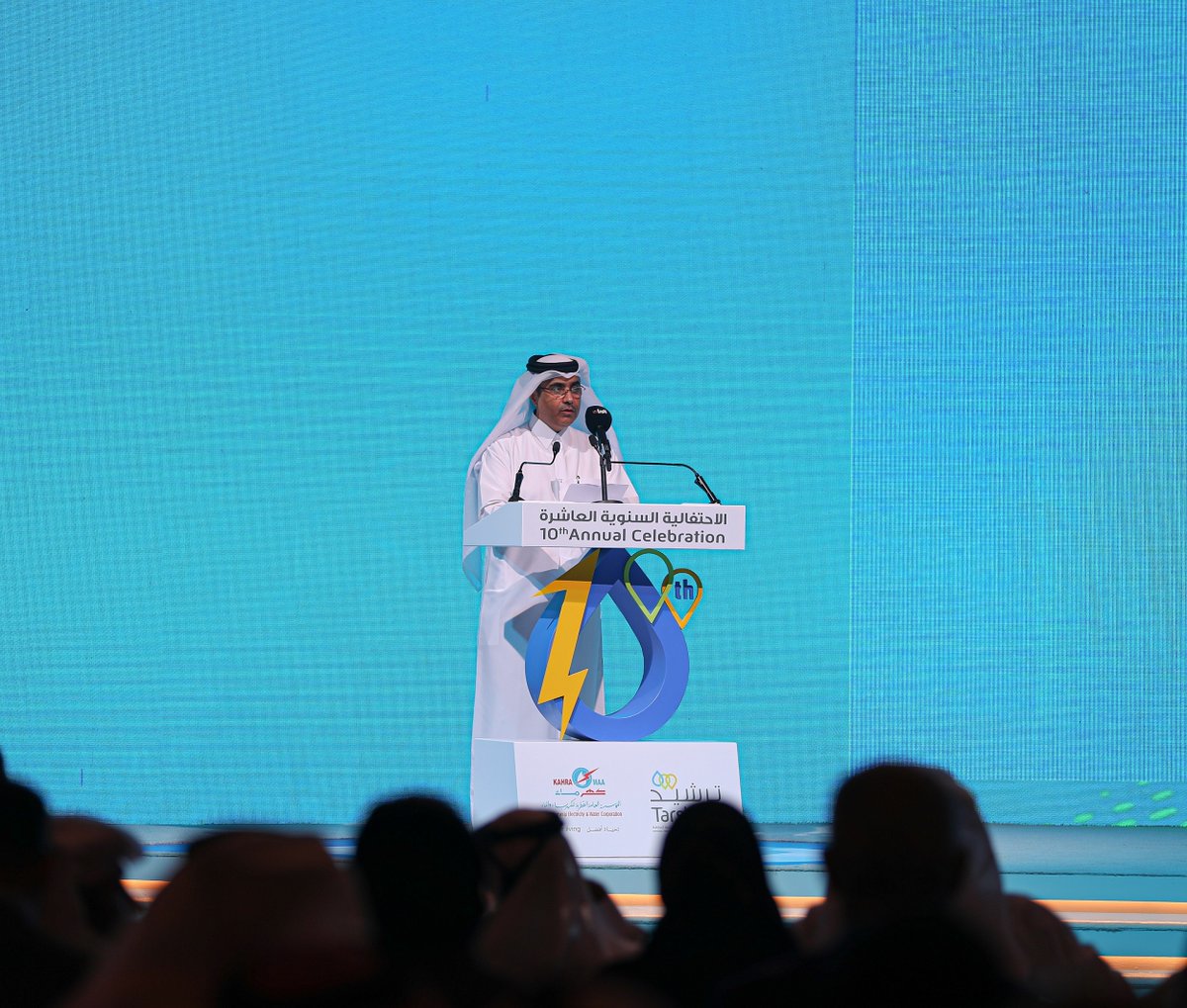The next phase will focus on adopting the latest technologies compatible with the environment, electric vehicles and renewable energy.
Qatar has reduced around 8,500 million kilogrammes of carbon dioxide (CO2) from the atmosphere as it moves towards achieving its 25% reduction in gas emission plan by 2030, officials have revealed.
After implementing new initiatives for greener practices, the Minister of State for Energy Affairs Saad Sherida Al Kaabi announced that the Gulf nation has also saved over QR4bn in the second phase of Tarsheed— a positive outcome of the national climate change action plan.
The new statistics were revealed during the 10th-anniversary celebration of the National Program for Conservation and Energy Efficiency (Tarsheed). Several state officials, in addition to the country’s Prime Minister and Minister of Interior Khalid bin Khalifa bin Abdulaziz Al Thani, attended the event to celebrate the milestone in the country’s sustainability achievements.
“Tarsheed worked during the first half of the last decade according to a programme aimed at achieving sustainability goals in energy efficiency and expanding the use of renewable energy in Qatar in line with Qatar National Vision 2030, the National Strategy 2018-2022, Qatar Environment and Climate Change Strategy 2021-2025 and the United Nations Sustainable Development Goals,” Al Kaabi said.
During the event, held under the theme “Towards Sustainability and Energy Efficiency,” the prime minister honoured the companies and winners of the 10th Tarsheed competitions, which helped in achieving a decrease in emissions and implementing more sustainable projects to help the country’s vision.
Efforts undertaken in the last decade from all sectors, in addition to governmental regulations, enabled Tarsheed to reach its given goal on time, with more positive emissions expected within the upcoming years.
According to Al Kaabi, the second phase of the programme (2019-2022) resulted in saving a total of 14,000 gigawatt-hours of electricity, more than 100 million cubic metres of water, and an estimated 138 thousand million cubic feet of gas.
By the end of last year, the plan achieved “a reduction in emissions of about 8,500 million kilogrammes of carbon dioxide. The programme also saved more than QR4bn,” the official added.
As for future plans, the third phase will take place from this year and up until 2030, focusing on renewable energy initiatives, combating climate change, and guaranteeing sustainable production and consumption of water and power.
“We will strengthen our efforts during the third phase of the programme to implement more in core sectors such as the strategy for electric cars, establishing 1,000 electric charging stations by the year 2025, promoting energy use, and working on initiatives related to sustainability, confronting climate change and reducing carbon emissions,” he added.
Meanwhile, the President of Kahramaa Essa bin Hilal Al Kuwari stated that the foundation-laying work in the previous stage, which outlined the fundamental regulations on energy efficiency and sustainable resource usage, was what made phase two successful.
“We are proud of these achievements, but our real achievements are instilling the concept of sustainability and climate change in the new generation by reaching 1,000 schools,” Al Kuwari disclosed.
“Also, we have seen a change in the behaviour of citizens, residents and our partners across all sectors in the country towards adopting a culture of rationalisation and energy efficiency.”
According to Al Kuwari, the next phase of the programme will enhance its previous achievements by preparing and developing regulations and legislation.
It will also adopt the latest technologies compatible with the environment, electric vehicles and renewable energy, especially solar energy, and zero waste of water and electricity.
“Climate and environmental actions are considered one of the most important issues on the global scene. Since its launch in 2012, the programme has been a fundamental basis for reducing harmful carbon emissions,” he added.
“This is to reach a target of 8 million tonnes per year by 2030 while taking into account permanent economic and social growth.”







